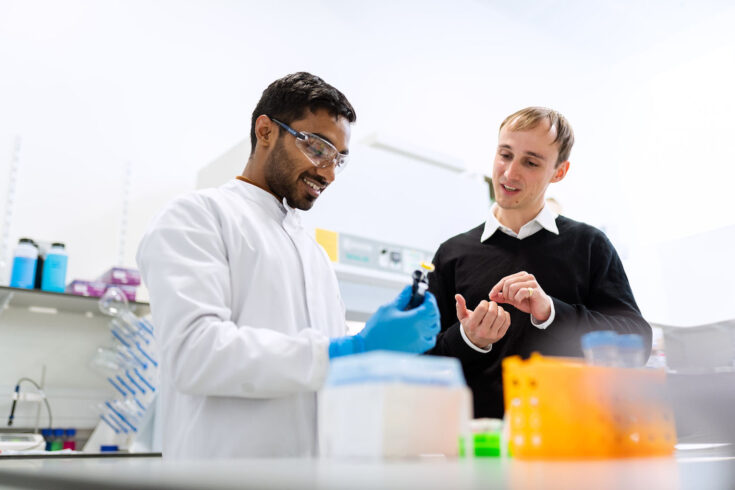Since the Industrial Revolution – and arguably, even longer – engineers have enabled societies to flourish. From roads and railways, machinery and factories, towns and cities, they’ve realised the ideas and innovations to make giant advances in the way we live. However, we now know there have also been negative impacts to this growth, drawing on the planet’s precious resources and emitting greenhouse gases at the cost of climate.
The theme of National Engineering Day is sustainable engineering, and there’s never been a more important time for engineers to use their knowledge of how the world works to create sustainable solutions that will benefit humanity and the planet.
As highlighted in the recent report, Tomorrow’s Engineering Research Challenges, tackling global issues such as climate change and dwindling resources cannot be achieved in isolation. These are complex systems challenges that need to be addressed at scale and in collaboration with others.
We need diversity in people, perspectives and skills. It’s about drawing from physics, chemistry and maths, and also social science, biological science, architecture and design to ensure we are creating resilient and sustainable engineering solutions without any negative consequences.
The Engineering and Physical Sciences Research Council (EPSRC) is funding some bold and creative solutions that address sustainability in every aspect of our lives. These projects are not only generating novel research and application, but also new ways of working that integrate sustainability at the very core of engineering.
Turning science into solutions for industry
The emerging field of engineering biology demonstrates how engineering can translate science into solutions, in this case by driving sustainable innovation for industry.
EPSRC investments, such as the £8.9 million EEBio programme, led by University of Oxford, are helping us better understand nature’s living systems and the many unique and valuable capabilities they possess. As well as biological techniques, engineering biology also draws on artificial intelligence and other computational elements of control engineering. The resulting engineered biosystems have potential applications in multiple sectors, including more sustainable agriculture, cleaner manufacturing methods and production of biomedicines.
Transforming waste into valuable materials
Sustainable engineering is not just about creative design, it’s also about how we build more efficiently and how we incorporate more sustainable resources.
Many materials used in industry are either imported, such as critical metals like lithium and nickel, or produced using unsustainable components or processes. At the same time, the food, forestry and farming industries are producing millions of tonnes of waste every year.
The £6 million VALUE programme grant, led by Imperial College London, is bringing together industrial and academics partners to develop functional materials from biowaste products, and new supply chains for them.
Developing meat-free steak
It’s also important to consider the broader impact of our innovations. The new Cellular Agriculture Manufacturing Hub, led by University of Bath, aims to transform food production by developing tissue engineering technologies to manufacture cultured meat. This could see pure muscle cells grown as a protein ingredient and even 3D-printed into ‘steaks’.
Such a transition could reduce greenhouse gas emissions from livestock, water and land usage. However, there are, of course, implications for traditional agriculture. So, importantly these technologies are being developed by transdisciplinary teams, with engineers working alongside social scientists on both the technology and the ethical considerations.
Co-creating sustainable cities
Addressing complex systems challenges, such as sustainable infrastructure in our towns and cities, also requires a collaborative approach. EPSRC has invested alongside the Natural Environment Research Council and the Arts and Humanities Research Council in networks to help communities become greener and more resilient.
The multidisciplinary networks bring engineering, environmental, arts and humanities and economic and social researchers together to identify opportunities and address these challenges. Our drive towards more inclusive engineering – co-creating with the people who have to live with a technology – helps ensure that solutions work for everyone, not just a particular demographic or biased towards one group.
Shaping a better future
National Engineering Day is about coming together, with organisations such as the Royal Academy of Engineering, to celebrate how engineers can shape the future and make a difference in the world. The UK has a long tradition for being a hotbed of engineering ideas and innovation. Now is the time for us to apply our knowledge and ingenuity to not only making people’s lives better, but also to engineer a more sustainable future too.
Top image: Credit: This is engineering



